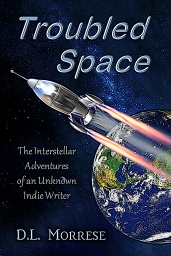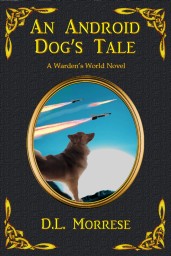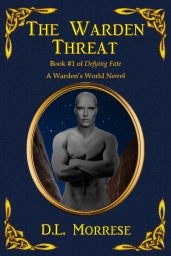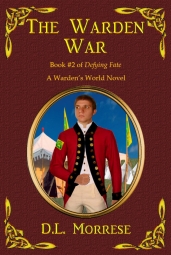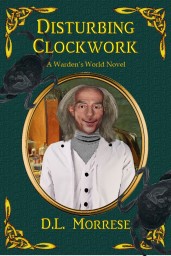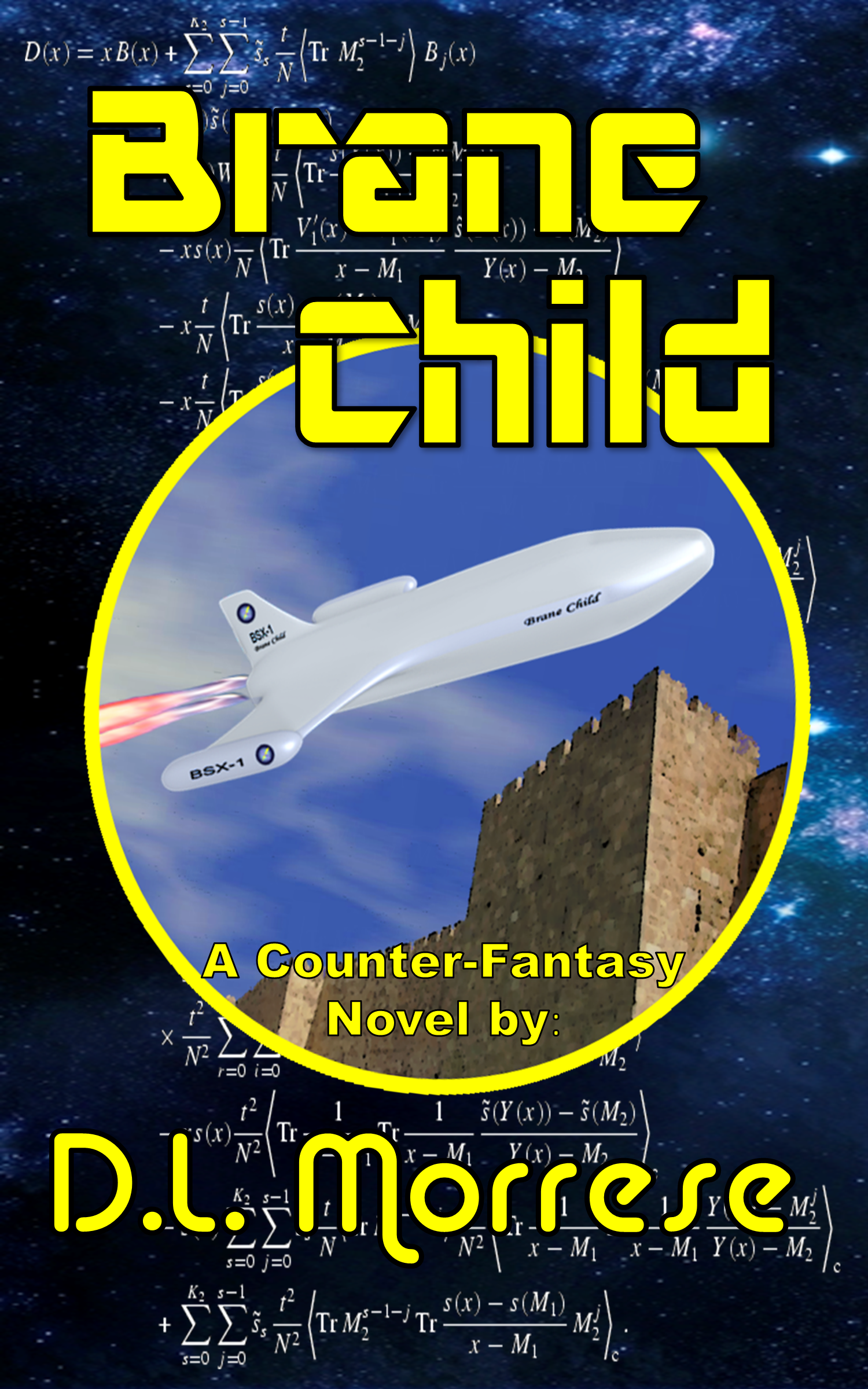Blog Archives
Some Thoughts on The Salmon of Doubt by Douglas Adams
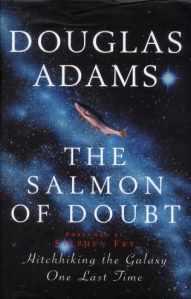 Douglas Adams died in May 2001. He was barely 49 years old. I read all of his published novels up until then, but I never read The Salmon of Doubt until now. It was published the year after his death, and it presents a collection of his writings including chapters from an uncompleted and largely neglected manuscript that he originally intended to be the third Dirk Gently novel, although he had been toying with the idea of rewriting it as another Hitchhiker’s Guide story.
Douglas Adams died in May 2001. He was barely 49 years old. I read all of his published novels up until then, but I never read The Salmon of Doubt until now. It was published the year after his death, and it presents a collection of his writings including chapters from an uncompleted and largely neglected manuscript that he originally intended to be the third Dirk Gently novel, although he had been toying with the idea of rewriting it as another Hitchhiker’s Guide story.
The reason I think I avoided reading it was that the story would never be finished. The world would never see another Douglas Adams novel, and this, I thought, was too sad to think about. So I didn’t. I suppose I was doing the emotional equivalent of throwing a towel over my head, hoping that if I didn’t acknowledge this disturbing thought, it would go away.
I recall a conversation I had with a coworker in 1999. He was a smart young man, well read, but with what I considered a distorted view of the universe. He was a philosophical adherent of the strong anthropic principle, claiming that this provided evidence of a purposeful universe. My own perspective on the issue was more like the one Adams relates in his puddle analogy.
Imagine a puddle waking up one morning and thinking, “This is an interesting world I find myself in — an interesting hole I find myself in — fits me rather neatly, doesn’t it? In fact it fits me staggeringly well, must have been made to have me in it!” This is such a powerful idea that as the sun rises in the sky and the air heats up and as, gradually, the puddle gets smaller and smaller, it’s still frantically hanging on to the notion that everything’s going to be alright, because this world was meant to have him in it, was built to have him in it; so the moment he disappears catches him rather by surprise.
On one occasion, our conversation turned to novels, and I asked him what he thought was the best novel ever written in the English language. He mentioned a few candidates from classic literature. I smiled and shook my head.
“You don’t agree?” he said.
“Nope.”
“What would you say, then?”
“The Hitchhiker’s Guide to the Galaxy,” I replied.
He laughed, obviously thinking I was making a joke. He was wrong.
The reason I think The Hitchhiker’s Guide ranks among the best, is that it shakes our complacency about our place in the universe. It takes us, collectively and individually, out of the center, much as Copernicus and Galileo did when they wrote that Earth was, well, not the center of the universe. Adams was more subtle and far more entertaining about it, though, and brought the idea to us not from a scientific or philosophical perspective, but from that of a normal guy, Arthur Dent. He might be the last human in the universe, and, you know what? The universe doesn’t care. It’s not here because of us.
This may seem irrelevant, but it has much to do with Adams and his view of the world, which is really the focus of The Salmon of Doubt. If I were forced to place it in a category, I’d have to call it a biography, although the final twenty-five percent or so is an unfinished novel. The prologue (written before Adams’ death) and the introduction (written after) are certainly biographical. Much of the first section, aptly named “Life,” is autobiographical. The second section, “The Universe,” includes entertaining articles Adams wrote for various publications, selections from interviews, and other bits and pieces. Together, the first two sections provide a good look at this quirky genius. Here are a few highlights:
- Work habits – A procrastinator
- Approach toward writing – He found it slow and difficult
- Attitude toward technology – Fond of gadgets and gizmos and loved his Apple computers
- Religion – Atheist (He didn’t seem to consider this a matter of belief so much as a conclusion that theism wasn’t a rational hypothesis.)
- Favorite alcoholic drink – Whisky (although he was also fond of a properly prepared cup of Earl Grey tea)
- Music – Favorites included the Beatles, Bach, Procol Harum, and Pink Floyd
- Hobbies – Scuba diving
- Interests – Science, Technology, Rhinoceroses
- Favorite kind of food – Japanese
- Favorite authors – P.G. Wodehouse, Charles Dickens, Jane Austen, Kurt Vonnegut, Ruth Rendell
- The book that changed his life – The Blind Watchmaker by Richard Dawkins (with whom he became good friends)
The last section of the book, “And Everything,” includes two short stories, The Private Life of Genghis Khan, and Young Zaphod Plays it Safe. Both are fun. It also includes eleven chapters compiled from three different versions of his uncompleted novel, The Salmon of Doubt. As presented here, this is a sequel to The Long Dark Tea-Time of the Soul. I enjoyed it. Dirk Gently is back, and he has a mysterious client, but he has no idea what he’s being paid to do or who is paying him so well to do it. Unfortunately, we never find out, although I have my suspicions. It brings back Kate, who now seems to be cohabiting with Thor, and it answers the question I had about the eagle from Teatime. I’m glad to have that resolved.
I never met Douglas Adams and obviously, I never will. After reading this book, though, I feel I know him a little. I know I owe him a lot, not just for the books I spent many hours reading and laughing through, but also because he was one of the writers who inspired me most to write my own stories. I wish I could thank him for that, or blame him. I would love to able to talk with him and ask him how he made it look so easy when it is really so hard. Mostly I would just like to have him back to let him know I appreciate what he did. I wouldn’t even badger him to write more stories.
Okay, that last bit is probably a lie.
Related Posts:
Book Review – The Long Dark Tea-Time of the Soul
Book Review – Dirk Gently’s Holistic Detective Agency
Book Review – Shada
In Recognition of Towel Day
The Hitchhiker’s Guide to the Galaxy
